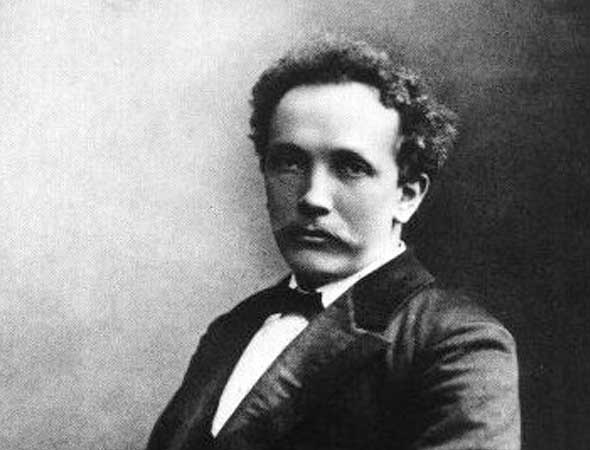R. STRAUSS: Ein Heldenleben (A Hero’s Life)
by Jeff Counts
THE COMPOSER – RICHARD STRAUSS (1864–1949) – The late 1890s found Richard Strauss in high demand as an opera conductor and at the zenith of his creative powers as an orchestral tone poet. His four-year stint at the Bavarian State Opera in Munich, though incredibly fertile compositionally, was coming to a necessary professional end and offers for a new post were lining up nicely. From New York to Hamburg (Mahler’s old job) to Berlin, he had options. In the end, the compensation package and flexible summer composing schedule proposed by the German capital city won out, and Strauss entered this new phase of his career with a great deal of confidence, something he never seemed to lack.

THE HISTORY – Packed in Strauss’ luggage (both kinds—the literal and the figurative) was the score-in-progress for his latest massive tone poem, Ein Heldenleben. He had been exploring and, in most ways, perfecting the tone poem genre for over a decade by that point and, though he would write two more after, Ein Heldenleben was the apotheosis of his efforts. In Strauss’ hands, the perceived limits of programmatic orchestral sound were shattered. There was no subject he could not render accurately in music, no scene he could not paint with a hyper-realistic symphonic clarity that threw open the doors of the modern era. Strauss detailed his intentions for Ein Heldenleben in a letter from the summer of 1898. “Since Beethoven’s Eroica is so unpopular with conductors and rarely performed,” he claimed, “I intend to fill the void with a large tone poem called A Hero’s Life.” It is difficult to imagine such a void having actually existed, and harder still to believe Strauss was ever in need of pretexts or contexts for his grandiose aims. He was a man of unbreakable self-assurance and he rarely withered before the bladed pen of a critic. This toughness would be tested by Ein Heldenleben, once it became clear who the hero (not to mention the adversaries) at the center of the drama really was. As he predicted in very notes of the piece itself (see below), reviewers were initially unkind in their assessment of Strauss’ autobiographical music, one calling a “monstrous act of egotism.” Strauss, newly established in Berlin as one of Germany’s most important musicians, simply shrugged off the charge. He supplied no literal synopsis for the piece, but he did furnish evocative section titles in the score. 1. The Hero (Strauss himself); 2. The Hero’s Adversaries (the very music critics who would attempt to punish him for his various blasphemies); 3. The Hero’s Companion (his beloved wife Pauline); 4. The Hero’s Battlefield; 5. The Hero’s Works of Peace; 6. The Hero’s Retreat from the World and Fulfillment.
THE WORLD – Elsewhere in 1898, the Spanish-American War was kicked off by the sinking of the USS Maine, the Five Burroughs of New York City were established, the Philippines declared independence from Spain, and Empress Elisabeth of Austria was assassinated in Geneva.
THE CONNECTION – Ein Heldenleben appears at least once per decade on Utah Symphony seasons and was most recently presented in 2015 with Thierry Fischer on the podium.











